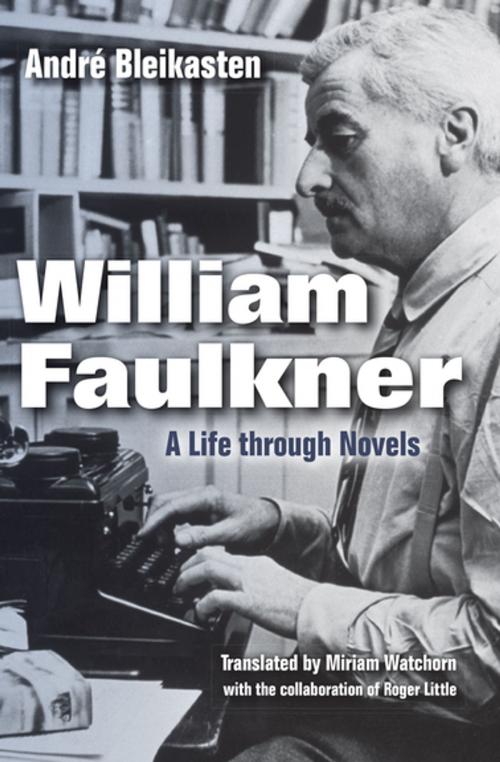William Faulkner
A Life through Novels
Fiction & Literature, Literary Theory & Criticism, American, Biography & Memoir, Literary| Author: | André Bleikasten | ISBN: | 9780253023322 |
| Publisher: | Indiana University Press | Publication: | March 1, 2017 |
| Imprint: | Indiana University Press | Language: | English |
| Author: | André Bleikasten |
| ISBN: | 9780253023322 |
| Publisher: | Indiana University Press |
| Publication: | March 1, 2017 |
| Imprint: | Indiana University Press |
| Language: | English |
“Accessible . . . Engaging . . . May well be our fullest account to date of what Bleikasten calls Faulkner’s ‘energy for life’ and ‘will to write.’” —Theresa Towner, author of The Cambridge Introduction to William Faulkner
Writing to American poet Malcolm Cowley in 1949, William Faulkner expressed his wish to be known only through his books—but his wish would not come true. He would go on to win the Nobel Prize for literature several months later, and when he died famous in 1962, his biographers immediately began to unveil and dissect the unhappy life of “the little man from Mississippi.”
Despite the many works published about Faulkner, his life and career, it still remains a mystery how a poet of minor symbolist poems rooted in the history of the Deep South became one of the greatest novelists of the twentieth century. Here, renowned critic André Bleikasten revisits Faulkner’s biography through the author’s literary imagination. Weaving together correspondence and archival research with the graceful literary analysis for which he is known, Bleikasten presents a multi-strand account of Faulkner’s life in writing.
By carefully keeping both the biographical and imaginative lives in hand, Bleikasten teases out threads that carry the reader through the major events in Faulkner’s life, emphasizing those circumstances that mattered most to his writing: the weight of his multi-generational family history in the South; the formation of his oppositional temperament provoked by a resistance to Southern bourgeois propriety; his creative and sexual restlessness and uncertainty; his lifelong struggle with finances and alcohol; his paradoxical escape to the bondages of Hollywood; and his final bent toward self-destruction. This is the story of the man who wrote timeless works and lived in and through his novels.
“Accessible . . . Engaging . . . May well be our fullest account to date of what Bleikasten calls Faulkner’s ‘energy for life’ and ‘will to write.’” —Theresa Towner, author of The Cambridge Introduction to William Faulkner
Writing to American poet Malcolm Cowley in 1949, William Faulkner expressed his wish to be known only through his books—but his wish would not come true. He would go on to win the Nobel Prize for literature several months later, and when he died famous in 1962, his biographers immediately began to unveil and dissect the unhappy life of “the little man from Mississippi.”
Despite the many works published about Faulkner, his life and career, it still remains a mystery how a poet of minor symbolist poems rooted in the history of the Deep South became one of the greatest novelists of the twentieth century. Here, renowned critic André Bleikasten revisits Faulkner’s biography through the author’s literary imagination. Weaving together correspondence and archival research with the graceful literary analysis for which he is known, Bleikasten presents a multi-strand account of Faulkner’s life in writing.
By carefully keeping both the biographical and imaginative lives in hand, Bleikasten teases out threads that carry the reader through the major events in Faulkner’s life, emphasizing those circumstances that mattered most to his writing: the weight of his multi-generational family history in the South; the formation of his oppositional temperament provoked by a resistance to Southern bourgeois propriety; his creative and sexual restlessness and uncertainty; his lifelong struggle with finances and alcohol; his paradoxical escape to the bondages of Hollywood; and his final bent toward self-destruction. This is the story of the man who wrote timeless works and lived in and through his novels.















